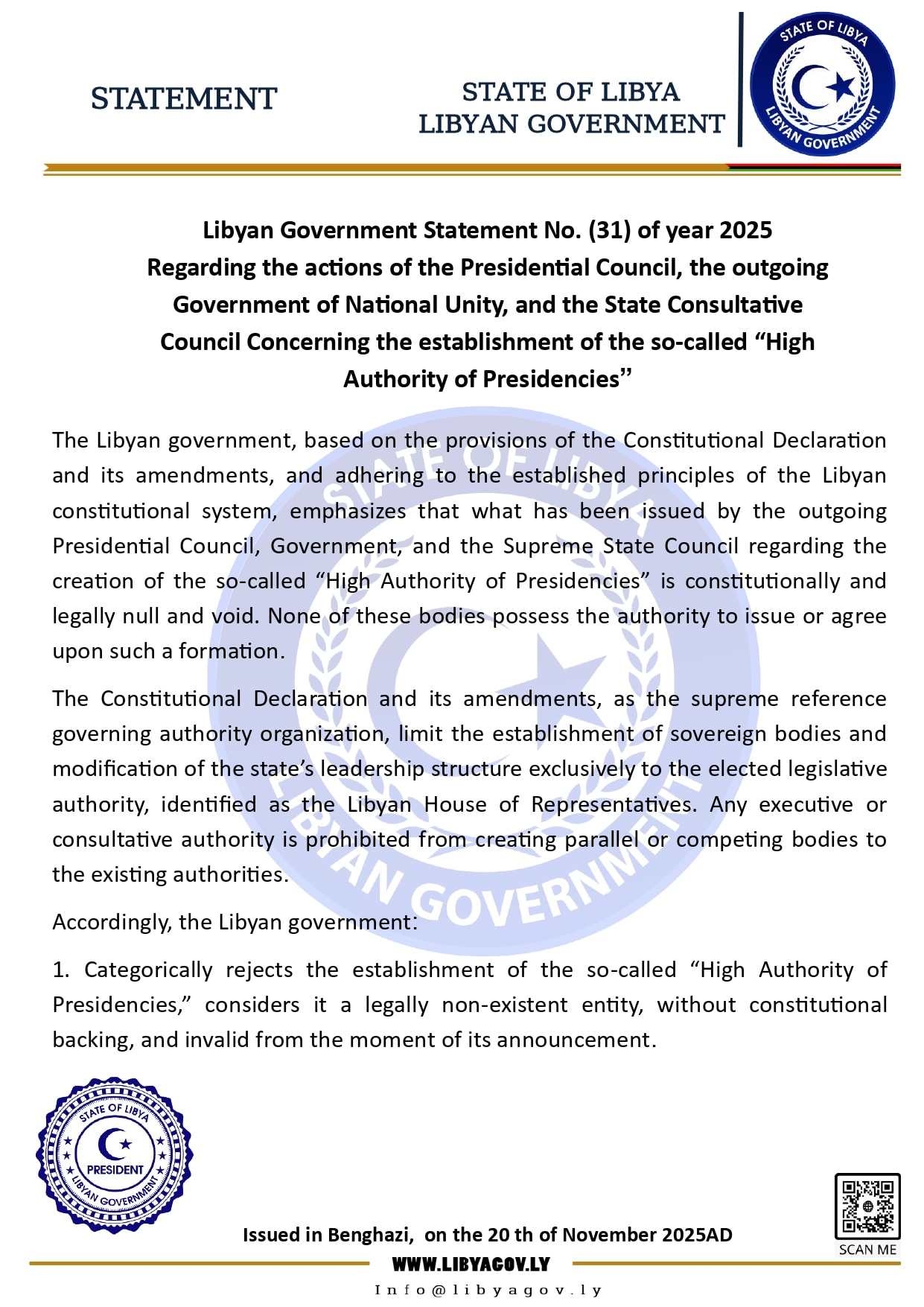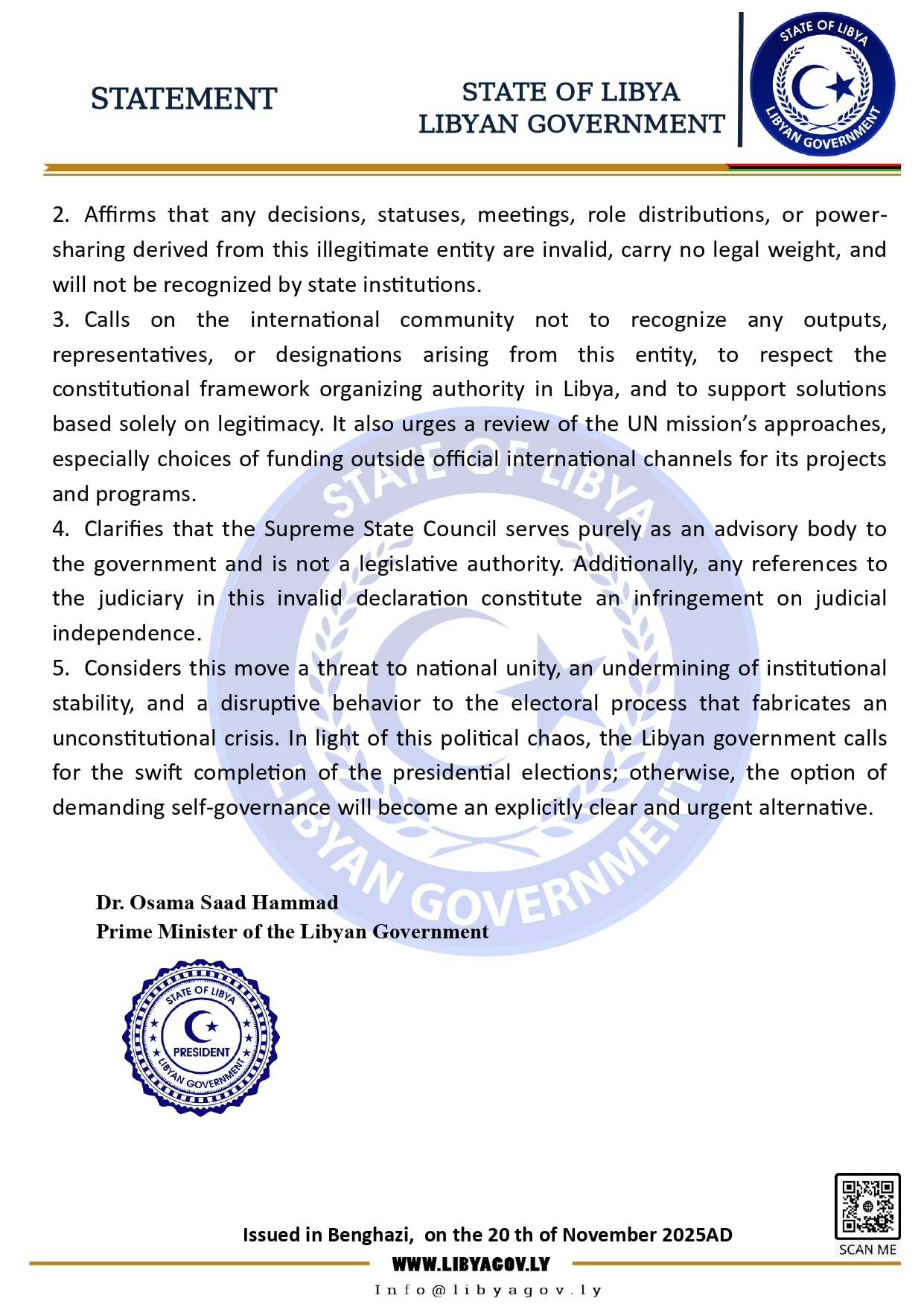Benghazi – The Libyan Government, led by Prime Minister Dr. Osama Hammad, has issued a stern condemnation regarding the recent establishment of a “High Authority of Presidencies,” declaring the body unconstitutional and warning that continued political fragmentation could force a move toward self-governance.
In official Statement No. 31 of 2025, issued on November 20, the government categorically rejected the new entity announced by the Presidential Council, the Government of National Unity (GNU), and the State Consultative Council.
Constitutional Dispute
The statement asserts that the creation of the “High Authority of Presidencies” is “legally null and void.” Citing the Constitutional Declaration, the Hammad-led government argues that the authority to establish sovereign bodies or modify the state’s leadership structure resides exclusively with the elected legislative authority, the House of Representatives.
“Any executive or consultative authority is prohibited from creating parallel or competing bodies to the existing authorities,” the statement read. Consequently, the government announced it would not recognize any decisions, meetings, or power-sharing arrangements resulting from this new body.
Appeal to the International Community
The statement called on the international community to refuse recognition of the new authority or its representatives. It emphasized the need to respect the constitutional framework currently organizing authority in Libya.
Furthermore, the government leveled criticism at the United Nations mission in Libya, urging a review of its approach—specifically regarding “choices of funding outside official international channels” for various projects.
Warning of Self-Governance
In a significant escalation of rhetoric, the statement described the formation of the High Authority as a “threat to national unity” and a move that fabricates an unconstitutional crisis to disrupt the electoral process.
Hammad’s government concluded with a direct ultimatum: if presidential elections are not completed swiftly to resolve the political chaos, “the option of demanding self-governance will become an explicitly clear and urgent alternative.”
This firm stance by the Libyan Government highlights its commitment to ending political tampering. By rejecting these unilateral moves, the government aims to halt the institutional fragmentation caused by the outgoing authorities, placing the full responsibility for any potential escalation on those attempting to bypass the legitimate legislative body.


